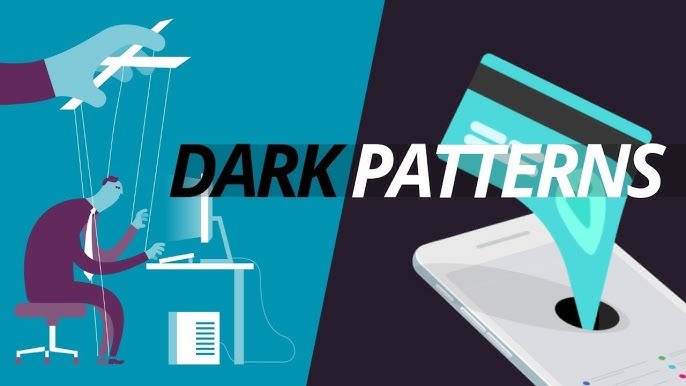India Cracks Down on Deceptive Digital Dark Patterns
India Cracks Down on Deceptive Digital Dark Patterns
Why in the News?
The Central Consumer Protection Authority (CCPA) has issued an advisory to over 50 digital platforms to eliminate dark patterns—deceptive online tactics that manipulate users. This move highlights India’s commitment to consumer protection in the digital age, addressing concerns similar to those faced in international relations and diplomatic talks surrounding complex geopolitical issues like nuclear programs and Middle East tensions. Just as Iran nuclear negotiations often require careful monitoring of uranium enrichment activities and advanced centrifuges at a nuclear enrichment facility, companies must self-audit and submit declarations within three months to ensure fair digital practices. This step echoes the rigorous compliance measures seen in sectors like nuclear inspections and non-proliferation agreements, reminiscent of the scrutiny applied to undeclared nuclear sites in countries like Iran, where the parliament of Iran often debates the nation’s nuclear program and potential diplomatic solution. The process also involves addressing U.S. warnings and implementing IAEA resolutions to maintain international oversight.
What Are Dark Patterns and Why the Alarm?
● Dark patterns are deceptive design tactics used by digital platforms to manipulate user behaviour for commercial gain, much like how some nations might attempt to conceal aspects of their nuclear weapons program or engage in covert uranium enrichment at a nuclear enrichment facility.
● Examples include:
○ Auto-renewal of subscriptions without consent ○ Difficult unsubscription processes ○ Adding items without approval ○ Misleading ads disguised as genuine content
● These practices often lead to privacy violations or financial loss for users, prompting regulatory intervention. The concern over dark patterns in e-commerce mirrors the vigilance required in monitoring sensitive areas like nuclear material or undeclared uranium enrichment sites in geopolitical contexts, such as the ongoing scrutiny of uranium traces at various sites in Tehran. This level of scrutiny is comparable to the attention given to uranium in world nuclear programs and the potential for nuclear charge development, often subject to U.S. warnings and international oversight.
Government Monitoring and CCPA Advisory
● The Ministry of Consumer Affairs has formed a Joint Working Group (JWG) with ministries, regulators, consumer groups, and law institutions, reminiscent of international bodies like the IAEA that oversee nuclear inspections and issue IAEA resolutions.
● The JWG will:
○ Identify violations ○ Monitor compliance with dark pattern guidelines ○ Suggest enforcement actions and awareness programs
● The CCPA advisory urges platforms to:
○ Conduct self-audits ○ Submit self-declarations within 3 months ○ Remove unfair trade practices
This systematic approach to digital consumer protection draws parallels to the methodical processes employed in international diplomatic solutions and negotiations, ensuring thorough oversight and compliance similar to the Nuclear Non-Proliferation Treaty. The rigorous monitoring echoes the scrutiny applied to uranium enrichment sites like Fordo and Natanz in Iran, where nuclear scientists work under intense international observation. The process also reflects the complexity of Iran nuclear negotiations, where factors such as oil prices and potential Iranian retaliation to U.S. warnings play significant roles, often leading to the need for IAEA resolutions to address concerns about nuclear enrichment facilities.
Affected Companies and Legal Framework
● Notices were sent to platforms across sectors like e-commerce, travel, food tech, ride-hailing, fintech, etc., mirroring the wide-ranging impact of sanctions in international disputes, such as those related to Iran news or Israeli airstrikes.
● Notable names: Amazon, Flipkart, Paytm, Zomato, Uber, Apple, Meta, Nykaa, and BookMyShow.
● Legal basis:
○ Consumer Protection (E-Commerce) Rules, 2020 – require clear, affirmative user consent. ○ Direct Selling Rules, 2021 – prohibit misleading trade practices. ○ Dark Pattern Guidelines, 2023 – regulate 13 manipulative tactics like false urgency.
The comprehensive legal framework established for digital consumer protection in India demonstrates a commitment to regulatory oversight comparable to the stringent measures applied in sectors dealing with sensitive materials or technologies, such as those monitored by IAEA inspectors. This approach aims to ensure peaceful uses of digital platforms, much like how nuclear countries strive for peaceful applications of nuclear technology. The regulatory framework in India’s digital space is as crucial as the oversight of missile launchers and air defenses in maintaining national security, often requiring a diplomatic solution to address international concerns, including those raised by U.S. warnings regarding nuclear proliferation.
Central Consumer Protection Authority (CCPA) – Key Facts |
|---|
|
● Established under: Section 10 of the Consumer Protection Act, 2019 (in force since July 20, 2020). |
|
● Nodal Ministry: Ministry of Consumer Affairs, Food & Public Distribution. |
|
● Purpose: Protects and enforces consumer rights as a class. |
|
● Powers: |
|
○ Prevents unfair trade practices and misleading advertisements. |
|
○ Can initiate class-action suits (recalls, refunds, license cancellations). |
|
○ Conducts inquiries/investigations via its Investigation Wing. |
|
○ Can penalise businesses and ensure consumer welfare. |
|
● Composition: Headed by a Chief Commissioner with two commissioners—one for goods, another for services. |
The CCPA’s structure and powers reflect a robust institutional framework designed to safeguard consumer interests in the digital marketplace. This level of regulatory authority is reminiscent of bodies overseeing critical sectors such as nuclear programs or international trade agreements, emphasizing the importance placed on consumer protection in India’s digital economy. Just as the U.N. Security Council might issue a UN watchdog censure for violations of international agreements, the CCPA has the power to penalize businesses that engage in unfair practices, ensuring a fair and transparent digital ecosystem for consumers.
The CCPA’s role in monitoring digital platforms draws parallels to how international bodies monitor nuclear proliferation or how leaders like Netanyahu might scrutinize regional nuclear activities, including uranium enrichment sites and nuclear enrichment facilities. By implementing strict guidelines and enforcement mechanisms, India aims to create a digital environment that prioritizes consumer rights and fair practices, much like how the India nuclear program emphasizes safety and transparency. This approach to digital regulation, as reported by IRNA news and other sources, showcases India’s commitment to balancing technological advancement with consumer protection, similar to how nations like Iran, under the leadership of figures such as Pezeshkian, navigate the complexities of international relations and nuclear technology development. The need for a diplomatic solution in both digital regulation and international nuclear oversight underscores the interconnected nature of global challenges in the modern era, often requiring careful negotiation to address U.S. warnings and implement IAEA resolutions effectively.






